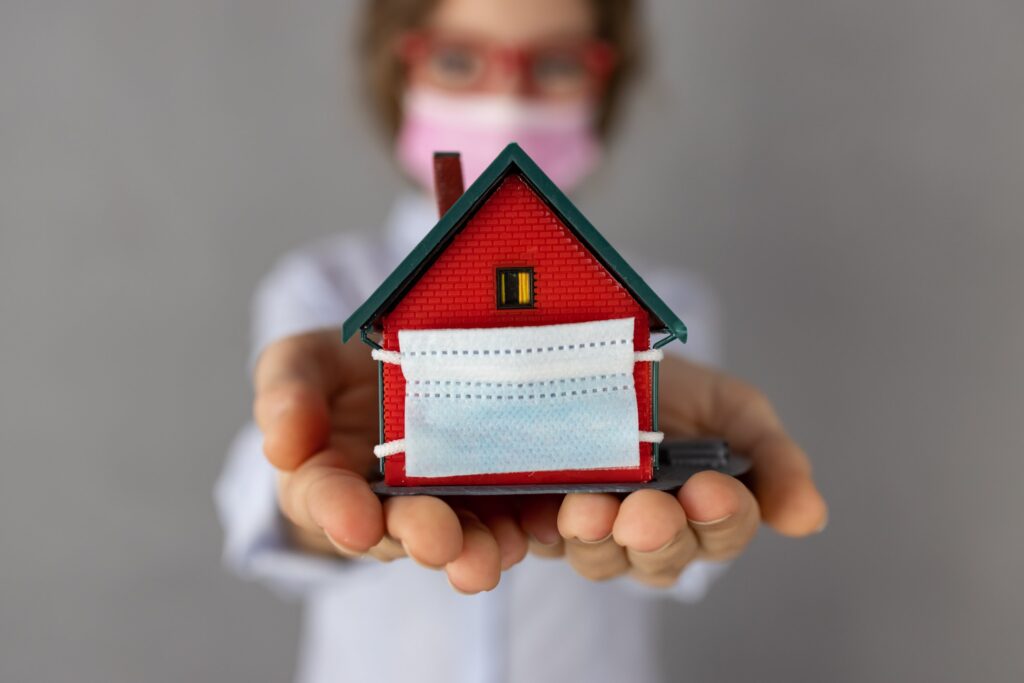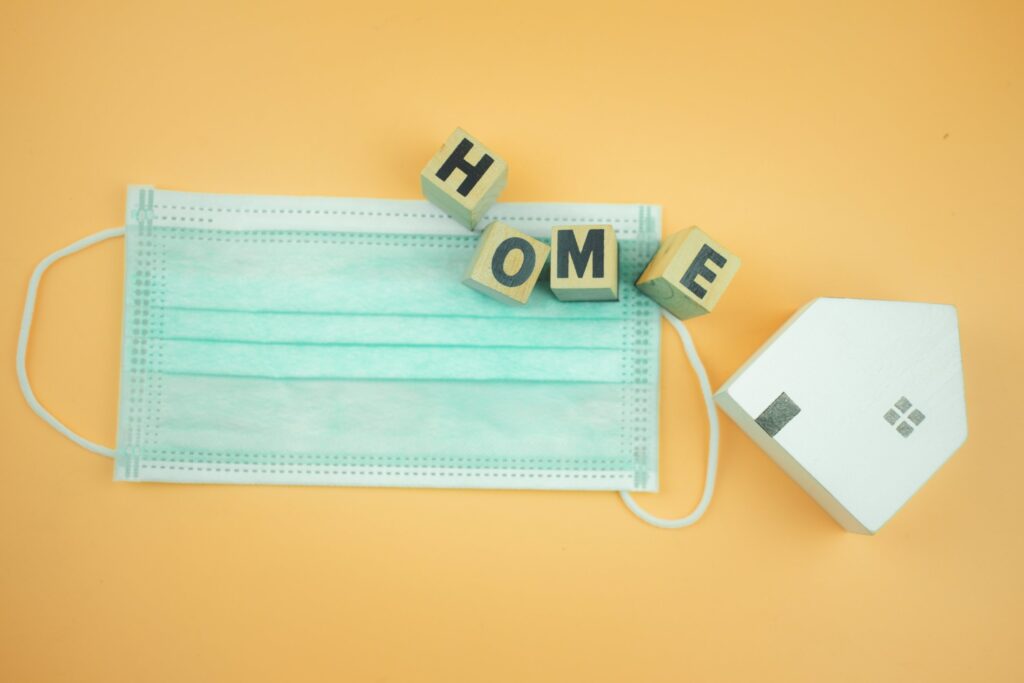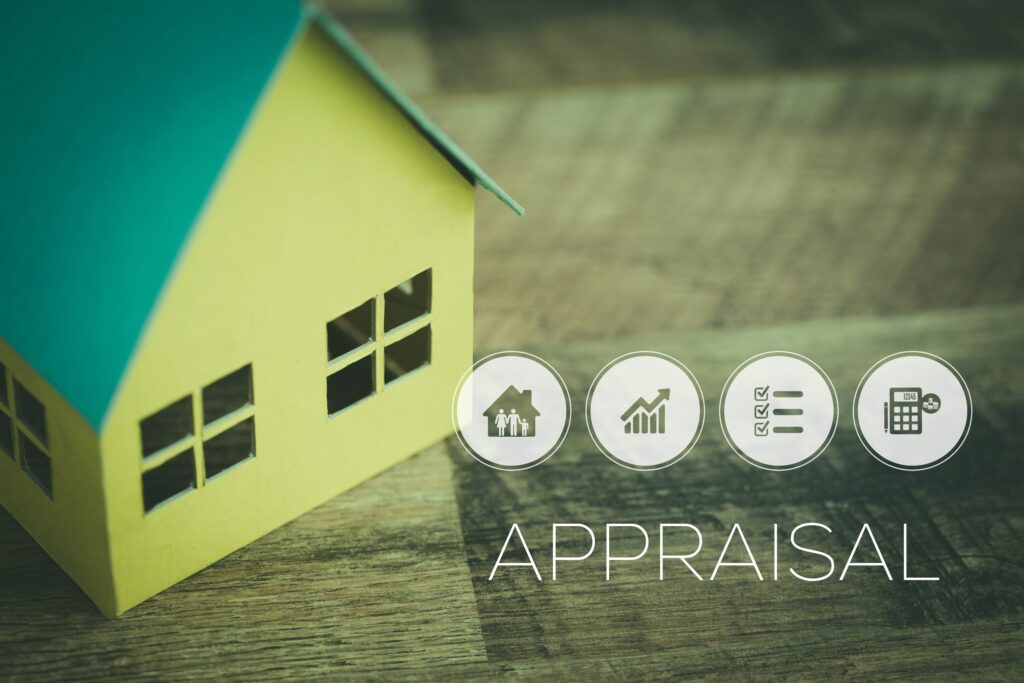
Housing prices in the UK have been steadily rising for decades, and the COVID-19 pandemic has only pushed them higher. While that is an unfortunate turn of events for first-time buyers (FTB) who need to take credit, it can present a highly lucrative opportunity for sellers aiming to turn a profit.
However, before you can start advertising your property for sale, you will need a house valuation.
Now, many factors play a role in home valuations – the size and location of the property, the age of the building, the overall condition, design elements, and more. Still, house valuations during COVID (2022) are slightly different than you might’ve expected. A house that was less than desirable a few years ago is now a priceless possession, and let’s not even speak of luxury properties.
Take a look at how the pandemic has impacted house valuations and housing prices.
Conducting in-person house valuations during COVID (2022)

Traditionally, house valuations would be conducted in person. A professional valuator, also known as a chartered surveyor, would visit the property and perform a thorough inspection. The process lasts roughly an hour, and during it, the valuator would assess the house from the perspective of a potential buyer, examining every nook and cranny of the interior and exterior of the property and taking into account:
- Size and location;
- Age;
- Overall condition;
- Unique features (such as cellars and utility rooms);
- Number of rooms;
- Floor plan (closed vs open floor plan);
- Neighbourhood;
- Proximity to schools, hospitals, public transportation, etc.
Once they’ve examined the property, they’d use one of the many valuation methods to give you their approximation:
- Sales comparison – providing valuation based on the value of similar properties in your area;
- Cost approach – valuation based on how much it would cost to build an exact replica of your home on the same property;
- Income capitalisation – valuation based on future market conditions and projected income your property could earn within a set timeframe;
- Gross rent multiplier – valuation based on the potential income in rent the property could earn;
- Cash-on-cash return – valuation based on the net operating income compared to the total required cash investment.
Regardless of the method used, your chartered surveyor should come to a realistic valuation of your home.
Since the start of 2020 and the onset of the pandemic, the process of house valuations has slightly changed. During the harshest months of the pandemic, there were almost no in-person valuations in the UK, as it brought many risks. Instead, most chartered surveyors started performing virtual home valuations.
Are there changes in the house valuation process due to COVID in 2022?
2020 and 2021 brought about significant changes to the house valuation process. As mentioned, most valuations were conducted virtually.
The process was relatively similar to in-person valuations – the only difference being that it was conducted via video calls. You’d simply need to turn all the lights in the house on and keep the blinds open to ensure better video quality.
The chartered surveyor would ask a few questions about the house and have you walk around your property, videoing both the interior and the exterior.
In 2022, the process has become even more streamlined. You don’t have to schedule video calls or communicate directly with valuators. You can get an accurate valuation, with only a 15% margin of error, by using free online calculators.
You would solely need to provide your postcode, answer a few questions about your property (and yourself), and you’ll get an instant valuation, calculated based on the current market conditions, recently sold prices in your area, and other relevant factors.
How safe is a house valuation during COVID 2022?

COVID-19 is a highly contagious disease, and as such, it’s made in-person house valuations considerably unsafe in the past couple of years – for both the valuer and the homeowner. However, things have started to take a turn for the better in 2022.
With most of the UK population vaccinated against COVID, the total number surpassing 53.6 million, in-person valuations are once again mainly considered safe. Of course, that doesn’t mean you should throw all caution to the wind.
It is still critical to take preventative measures to ensure the well-being of all household members and visitors, including your chartered surveyor.
Do we need to wear PPE during a house valuation?
The mask mandate has been lifted in the UK. Therefore, it’s no longer required by law for you or your chartered surveyor to wear any sort of Personal Protective Equipment (PPE) during your in-person valuation. You should still discuss wearing PPE with your valuator when scheduling their visit over the phone.
Some surveyors will refuse to conduct a valuation unless all household residents wear a mask. Some homeowners refuse to let a surveyor in if they have no PPE, so it is in your best interest to discuss wearing a mask for the home valuation in advance.
The home valuation process is relatively short, and it would be of no harm for anyone involved to take precautions and use PPE for the duration of it.
Do I need to cancel my house valuation if I have COVID?
It is critical to cancel your house valuation if you or someone in your household has tested positive for COVID-19. Although things have largely returned to normal thanks to the vaccines, and the number of critical cases of COVID has dropped significantly, the disease is still dangerous, and it’s essential to minimise contact with others when you’re positive.
While the government-imposed measures to prevent the spread of COVID have been lifted, you still need to do all you can to protect those around you if you’re positive. Keep your distance and wear a mask when you’re in the presence of others.
If you have no symptoms but keep testing positive, refrain from socialising until you receive a negative result.
Cancel your in-person home valuation when you have COVID, and either schedule a virtual valuation or wait to have your home valuated after you’ve recovered.
What is the demand for house valuations during COVID in 2022?
The first two years of the pandemic have been expectedly hectic for all industries. The demand for house valuations skyrocketed, together with the valuations themselves. Though things are slowly stabilising, the demand for house valuations is still high in 2022.
After all, it’s still a seller’s market – homeowners can turn a significant profit and get a pretty penny even on properties that are far from perfect.
In-person house valuations are slowly picking up speed, but it’s virtual valuations that have truly taken off since the start of the pandemic. In the middle of 2022, virtual valuations remain in high demand, with more surveyors and homeowners choosing to go through the process entirely online.
Impact of COVID on the housing market in the UK
It’s no secret that the COVID-19 pandemic has had a massive impact on the housing market in the UK. The prices soared, with the average UK home in 2022 being valued at £283,000 – an increase of £32,000 compared to last year.
The main reason for the increase is high demand and low supply. The number of active home-for-sale listings has been surprisingly low over the past couple of years. The housing shortage, combined with the labour shortage and supply chain issues that impact new builds, has caused a significant rise in home prices.
It was expected that the COVID impact would quickly fade out with the rise in vaccinations, but it’s lingering on. The housing market in the UK still has a ways to go before we can genuinely say that it’s returned to normal.
Effect of COVID on house valuations in the UK
Naturally, COVID-19 has also had a significant impact on house valuations in the UK. Traditionally, all valuations would be conducted in line with the Red Book guidelines, issued by the Royal Institution of Chartered Surveyors in an attempt to provide a fair value measurement.
However, the housing market is still highly volatile, and it’s still difficult for many surveyors to conduct proper in-person valuations. It’s challenging to provide an accurate assessment, and so valuers are forced to include an “uncertainty clause” in their valuations:
“As at the valuation date, we consider that we can attach less weight to previous market evidence for comparison purposes, to inform opinions of value. Indeed, the current response to COVID-19 means that we are faced with an unprecedented set of circumstances on which to base a judgement.”
The clause is meant to ensure that all the parties involved understand that the assessment is done in extraordinary circumstances. The valuation is still reliable. However, the true value of the property could quickly change depending on the current market conditions.
Are home appraisals higher in 2022?

As a general rule of thumb, home appraisals are higher in 2022 than in the past few years. The rising costs of the building materials, shortages in supply, high demand, and more are pushing the value of residential homes to go up.
However, valuers still look into all the factors above when determining the worth of your property – size, location, condition, etc. Additionally, they conduct a thorough analysis of the current market to provide you with an accurate assessment.
As the housing market is highly volatile at the moment, your property could receive a higher appraisal than your neighbour’s identical property, for instance, a couple of weeks ago.
How often do appraisals come in low in 2022?
Low appraisals aren’t nearly as common as you may think. Even with the aforementioned “uncertainty clause”, valuers still follow the Red Book guidelines and do everything they can to provide a fair, realistic value assessment.
With this in mind, you should still know that low appraisals can happen. Some of the things that could cause low appraisals include:
- Lack of comparable properties:
Many valuators use the sales comparison method to provide an accurate appraisal. In cases where there are no comparable properties in your area, the appraisal could be either higher or lower than expected;
- Changing markets:
Volatile market conditions could cause your appraisal to be lower, even compared to the appraisal you received just days ago;
- Your home’s appearance:
An untidy home or even a home with a poor choice of decor or interior design could receive a lower appraisal than a comparable home that’s kept cleaner;
- Subjective reasons:
A valuer always aims to provide an unbiased assessment. However, it’s the ultimate buyer that dictates the price of your property. If a buyer considers your home to be more valuable due to subjective reasons – they like the schools in the area, they grew up in a similar-looking home, etc. – they are probably prepared to offer more money compared to the value you received in the appraisal.
Will house prices go down in 2022?
As it currently stands, there’s an annual price increase of 12.8% on UK residential properties. Most expected that the prices would start dropping at the start of 2022, but they’ve only continued rising. Therefore, as of right now, there’s no reason to believe it will be any different by the end of the year.
House prices are expected to continue rising throughout the year, though not quite as dramatically as in the past two years. The rate of growth will slow down, especially during the winter months when the market is generally much calmer.
Will the housing market crash in the UK in 2022?
The low mortgage rates are currently encouraging buyers to invest in property. However, there is rising concern that the rates will increase with the soaring inflation, preventing buyers from making significant investments and suddenly pushing housing prices down, causing a market crash.
While it’s a possibility, experts deem it highly unlikely. There’s still a high demand for housing and a low supply. Housing prices might contract slightly in 2023, which will only increase the demand further.
Should I get a valuation during COVID 2022 or wait?

As long as you and your household members haven’t contracted COVID, there’s no reason to delay getting a house valuation in 2022. The housing prices are high at the moment, with expected (slight) increases by the end of the year.
Considering that there’s no way to know with absolute certainty whether the prices will continue rising throughout 2023, getting a valuation now could be the best choice for you.
Conclusion
House valuations during COVID (2022) have been somewhat challenging, despite the number of COVID cases dropping significantly since the start of the year. Still, the housing market is hot, so getting a valuation and putting your property up for sale could earn you a significant profit.